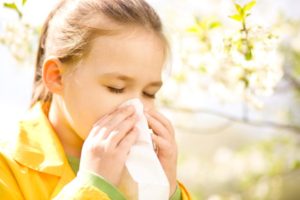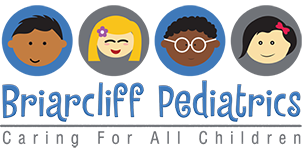Common Questions About Summer Colds
- On Jun, 19, 2018
- Doctor Notes
- Latest News
We all know that every child needs medical care all year round, but many people do not realize that summer can actually be a particularly busy time here at Briarcliff Pediatrics. Between the usual childhood illnesses, routine injuries from outdoor activities and well-child physicals for camp and summer sports, our board-certified pediatricians, Dr. Ray Deeb and Dr. Ashley Brown, stay very busy. Most issues during the summer are routine, but there is one summer health issue that fills children with more dread than any other: the common summer cold. It can be difficult for children to be stuck inside coughing and sneezing when all of their friends are enjoying themselves outside, and worrisome for parents who might be wondering exactly what’s going on. Fortunately, understanding what to expect will do a great deal to help minimize your anxieties. Here are answers to some of most frequently asked questions about summer colds.
 How can you catch a “cold” during the summer?
How can you catch a “cold” during the summer?
Many people still mistakenly believe that “catching a cold” has something to do with being exposed to conditions that are cold or damp. This is simply not true. Although the external environment can have an effect of your body’s immune system, in order to catch a cold you must be exposed to some form of cold virus. Unfortunately, there are more than 200 different viruses that can cause cold symptoms and coming into contact with them is very easy, especially for children. The most common of these, a group of germs called rhinoviruses, survive better in cooler temperatures and so are more prevalent between the months of September and May. Those who experience cold symptoms during the summer months have likely been affected by a non-polio enterovirus infection.
How is a summer cold different from a winter cold?
Although the viruses that cause summer and winter colds are different, the symptoms are usually very similar. Like rhinoviruses, enteroviruses can infect the tissues of the nose and throat, but can also affect the eyes, the digestive system, or other areas as well. Some enteroviruses, like the ones responsible for causing polio, can be quite serious, but childhood vaccines have all but completely eliminated these from the Western world. The approximately 60 types of non-polio enteroviruses that remain can cause sudden fever, mild respiratory symptoms, sore throat, headache, muscle aches, and gastrointestinal issues like nausea or vomiting.
How can you tell it’s a summer cold and not allergies?
Different types of plant pollens and environmental irritants are common at different times of the year, so many childhood allergies are seasonal. This can make it difficult to tell whether your child has a cold or a more significant health issue. However, while both colds and allergies can cause sneezing, runny nose, and congestion, only a summer cold will cause other symptoms like coughing, sweating, and fever. Moreover, a summer cold will generally run its course within one to two weeks, while allergies will persist throughout the season. Children also tend to bounce back more quickly from a cold than adults, so if your child’s symptoms last longer than ten days it may be a good idea to bring them in to Briarcliff Pediatrics for immediate care.
How do I treat a summer cold?
It is best to treat a summer cold in the same way you would treat one that happens in the winter, with plenty of bed rest and fluids. Because colds are caused by viruses and not bacteria, antibiotics will have no effect. You can make your child more comfortable with various over-the-counter medications, like decongestants to unclog a stuffy nose, non-aspirin pain relievers (like Children’s Tylenol) to reduce fever and manage pain, and cough drops and throat lozenges to soothe a sore throat. Remember, however, that all medications have side effects, so be sure to carefully read all instructions and warnings before using any over-the-counter treatments.
If your child is experiencing any summer cold symptoms, or if you have any other health concerns that you would like to have addressed, please contact Briarcliff Pediatrics to schedule an appointment. You can even learn more about our practice by coming in for a complimentary meet and greet, where you can talk in person with Dr. Deeb or Dr. Brown and get a tour of our newly renovated office. Don’t forget to follow us on social media to get up to date health tips and the latest news in children’s health care.




